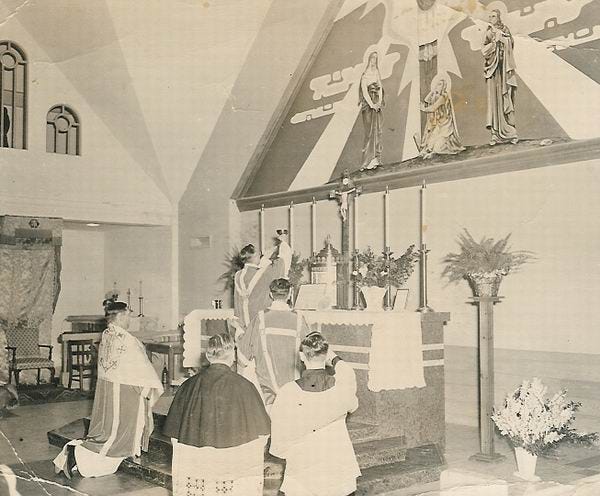On Consecration: We Belong to God
What is consecration? It is, simply put, setting aside for service to God and recognizing one’s belonging to the Creator. As the Holy Father prepares to consecrate Russia and Ukraine to the Immaculate Heart of Mary, and we Catholics join in fervent prayer, the word consecration has revived in Catholic parlance. Let us dig deeper, so as to give our prayers true intention and force.
First, the most literal meaning of the word, taken from Latin, gives us:
con, together (used as an intensifier)
secrare, to make sacred, holy
the action noun ending tio
The word’s roots clearly point to the act of making something holy or sacred.
Consecration has a very specific connotation in the Catholic Church of something or someone who is set apart for God’s service. Here are some examples of consecration in Catholic life:
The ordination of bishops was more commonly called consecration up until the Second Vatican Council.
Consecrated virgins and those in the consecrated life are dedicated to works of penance and mercy, setting not only their hearts but their bodies aside for God’s work alone.
Holy objects such as the Chrism oil and chalices are consecrated by bishops for sacramental use.
Altars are specially consecrated for worship, although the rite is called in modern times a “dedication.”
A church can only be solemnly dedicated if it is debt-free, as a building that still claims an owner outside of the Church could not be dedicated to God’s service.
Consecration practices and prayers to Christ and Our Lady abound, wherein a person consecrates themselves (or their children or families) to one of the aforementioned. Some saints consecrated themselves daily to Our Lord and Our Lady.
The Transubstantiation of the Holy Eucharist is the ultimate Consecration, wherein the offering of bread and wine are truly changed into the Body and Blood, Soul and Divinity of Christ. A worthy reception of the Holy Eucharist draws us into that heavenly, transformative consecration.
These consecrations have certain elements in common:
They all involve a change or transformation.
The change is intended to be permanent (and only in unhappy cases will something or someone be de-consecrated, such as when a church building is sold).
Consecration requires giving over something or someone.
The giving is willful, solemn and deliberate, often ritualized.
Each consecration requires the person doing the consecration to have authority to consecrate, generally, some form of human ownership (such as owning a church building, or having authority over oneself or one’s children).
The change sets the person or object apart for holy service.
And more mysterious elements:
As all belongs to God already, consecration combines a divine and human element, wherein we recognize and give back to Him what is already His.
By consecrating to St. Joseph, Our Lady, our angel, or any other intercessor, we bind ourselves to those who will, in turn, bind us to God; of course, it is Christ Who binds us to the saints first. This form of consecration is a true fulfillment of the doctrine of the Communion of Saints.
Consecration is a spiritual act that is willed, and thus tangible or perceptible in some way; even when the consecration is done interiorly with one’s will and not verbally, we are conscious of exerting our will.
On this Friday, we must pray very much for Russia and Ukraine: that as the Holy Father offers these nations to Our Lady, the consecration will be true to Our Lady’s desires, and that it will effect real and lasting change in the hearts of those at war. As we beg Our Lady to accept Russia and Ukraine as her own, we know this:
First, Russia and Ukraine already belong to Her, for she is the Queen of Heaven and Earth; and therefore through her, they belong already to God. The consecration is our own turning back to her and returning to her what is already hers; she has never abandoned her children.
Second, we must pray for the hearts of Russians and Ukrainians continually, that each man and woman and child will, not only for their country, but for their own sakes, offer themselves to Our Lady.
The character of the nation impresses itself on the hearts of its people; and the heart of a nation turns only when the hearts of its people are converted.



